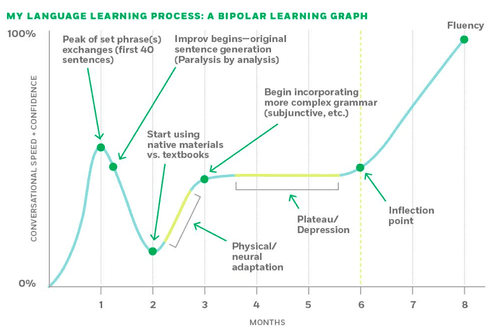The Motivation Machine: How to Get & Stay Motivated for Any Goal - Nat Eliason
Curated from: nateliason.com
Ideas, facts & insights covering these topics:
7 ideas
·2.23K reads
Explore the World's Best Ideas
Join today and uncover 100+ curated journeys from 50+ topics. Unlock access to our mobile app with extensive features.
Consider something simple like taking out the trash. When the trash is empty, there's no Value to taking it out, so you have low motivation to do it. When the trash is full there's more Value, and you can reasonably Expect you'll be able to do it, but you might get distracted by the Internet (Impulsiveness) and still not do it. It might not be until the trash is overflowing and has flys around it (very high Value to taking it out) that you can finally overcome your Impulsiveness to do it.
409
320 reads
Consider something simple like taking out the trash. When the trash is empty, there's no Value to taking it out, so you have low motivation to do it. When the trash is full there's more Value, and you can reasonably Expect you'll be able to do it, but you might get distracted by the Internet (Impulsiveness) and still not do it. It might not be until the trash is overflowing and has flys around it (very high Value to taking it out) that you can finally overcome your Impulsiveness to do it.
409
319 reads
Consider something simple like taking out the trash. When the trash is empty, there's no Value to taking it out, so you have low motivation to do it. When the trash is full there's more Value, and you can reasonably Expect you'll be able to do it, but you might get distracted by the Internet (Impulsiveness) and still not do it. It might not be until the trash is overflowing and has flys around it (very high Value to taking it out) that you can finally overcome your Impulsiveness to do it.
409
320 reads
LessWrong gives us a more helpful equation:
As they describe it, your motivation is a function of your Expectancy (how likely you think you are to accomplish the goal) multiplied by the Value of the goal to you, divided by the product of your Impulsiveness (how distractible you are) and the Delay (how far off the result seems).
409
320 reads
The problem with this philosophy is that while it's good for creating more urgency and lowering your Delay if you fail to get it done in your tight deadline, you might decrease your Expectancy in the process.
The Planning Fallacy Philosophy : The Planning Fallacy philosophy says that you should set longer deadlines than you expect you'll need since we're terrible at predicting how long projects will take us. According to Kahneman and Tversky, only 48% of students completed projects in a time estimate based on "everything going as poorly as it possibly could." Given this data, it seems we should double or quadruple our estimated time of completion to get an accurate view.
409
320 reads
"Of all the things that can boost emotions, motivation, and perceptions during a workday, the single most important is making progress in meaningful work . And the more frequently people experience that sense of progress, the more likely they are to be creatively productive in the long run. Whether they are trying to solve a major scientific mystery or simply produce a high-quality product or service, everyday progress- even a small win-can make all the difference in how they feel and perform ." (emphasis mine)
410
319 reads
To make it more effective, though, assign a date to complete it by . "Finish the first three exercises" isn't particularly urgent, but "finish the first three exercises by Friday" is. There are two competing philosophies for how to best do this:
The Parkinson's Law Philosophy : The Parkinson's Law philosophy says that you should set an artificially short deadline so you don't waste time dilly-dallying on unimportant things. It says that by giving yourself a smaller window to complete the task in, you'll be more likely to get it done efficiently , since "work expands so as to fill the time available for its completion."
410
319 reads
IDEAS CURATED BY
Gufran Mozahir's ideas are part of this journey:
Learn more about motivationandinspiration with this collection
How to practice self-compassion
How to identify and challenge negative self-talk
How to build self-confidence
Related collections
Similar ideas
11 ideas
3 ideas
6 ideas
Read & Learn
20x Faster
without
deepstash
with
deepstash
with
deepstash
Personalized microlearning
—
100+ Learning Journeys
—
Access to 200,000+ ideas
—
Access to the mobile app
—
Unlimited idea saving
—
—
Unlimited history
—
—
Unlimited listening to ideas
—
—
Downloading & offline access
—
—
Supercharge your mind with one idea per day
Enter your email and spend 1 minute every day to learn something new.
I agree to receive email updates
